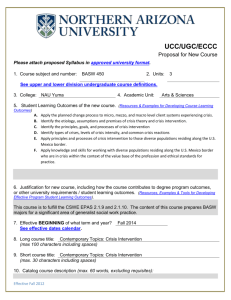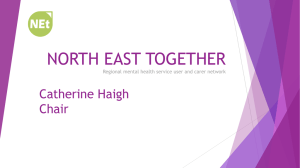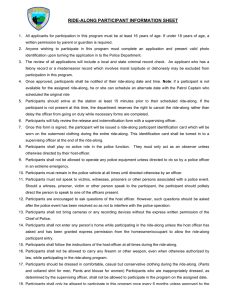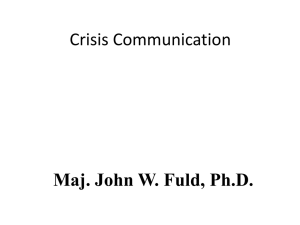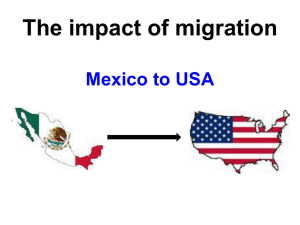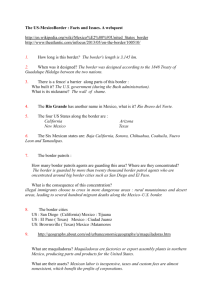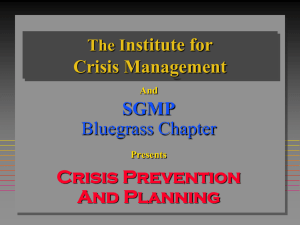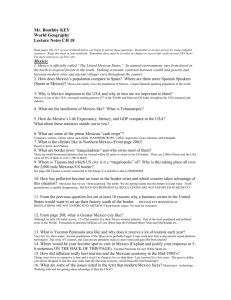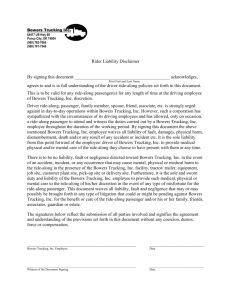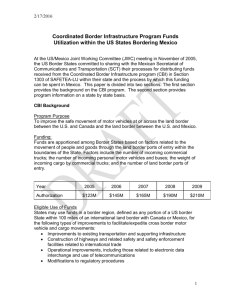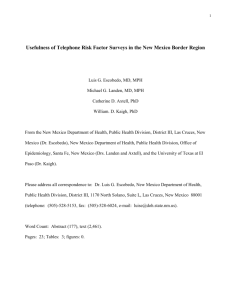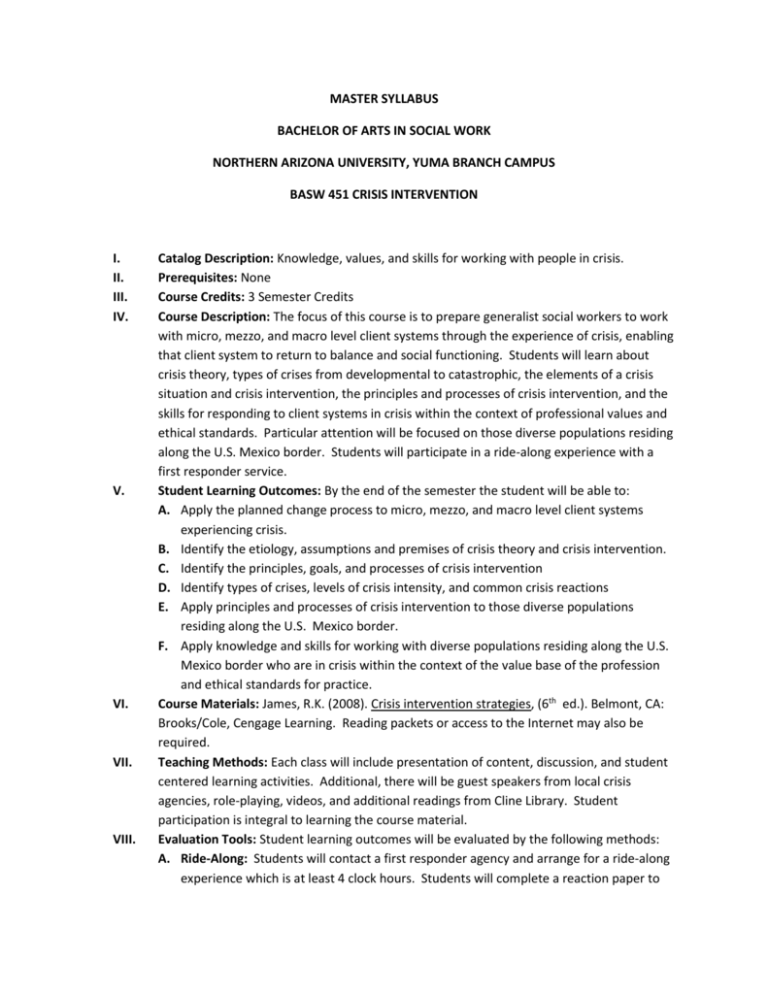
MASTER SYLLABUS
BACHELOR OF ARTS IN SOCIAL WORK
NORTHERN ARIZONA UNIVERSITY, YUMA BRANCH CAMPUS
BASW 451 CRISIS INTERVENTION
I.
II.
III.
IV.
V.
VI.
VII.
VIII.
Catalog Description: Knowledge, values, and skills for working with people in crisis.
Prerequisites: None
Course Credits: 3 Semester Credits
Course Description: The focus of this course is to prepare generalist social workers to work
with micro, mezzo, and macro level client systems through the experience of crisis, enabling
that client system to return to balance and social functioning. Students will learn about
crisis theory, types of crises from developmental to catastrophic, the elements of a crisis
situation and crisis intervention, the principles and processes of crisis intervention, and the
skills for responding to client systems in crisis within the context of professional values and
ethical standards. Particular attention will be focused on those diverse populations residing
along the U.S. Mexico border. Students will participate in a ride-along experience with a
first responder service.
Student Learning Outcomes: By the end of the semester the student will be able to:
A. Apply the planned change process to micro, mezzo, and macro level client systems
experiencing crisis.
B. Identify the etiology, assumptions and premises of crisis theory and crisis intervention.
C. Identify the principles, goals, and processes of crisis intervention
D. Identify types of crises, levels of crisis intensity, and common crisis reactions
E. Apply principles and processes of crisis intervention to those diverse populations
residing along the U.S. Mexico border.
F. Apply knowledge and skills for working with diverse populations residing along the U.S.
Mexico border who are in crisis within the context of the value base of the profession
and ethical standards for practice.
Course Materials: James, R.K. (2008). Crisis intervention strategies, (6th ed.). Belmont, CA:
Brooks/Cole, Cengage Learning. Reading packets or access to the Internet may also be
required.
Teaching Methods: Each class will include presentation of content, discussion, and student
centered learning activities. Additional, there will be guest speakers from local crisis
agencies, role-playing, videos, and additional readings from Cline Library. Student
participation is integral to learning the course material.
Evaluation Tools: Student learning outcomes will be evaluated by the following methods:
A. Ride-Along: Students will contact a first responder agency and arrange for a ride-along
experience which is at least 4 clock hours. Students will complete a reaction paper to
IX.
this experience that addresses the various types of crises observed, client crisis
reactions, ethical dilemmas observed, issues of diversity that emerged, and student’s
reaction to the ride-along experience.
B. Video Case Analysis: Students will be assigned a type of crisis situation and role-play
that client in crisis to a classmate. The classmate is a generalist social worker along the
U.S. Mexico border responding to a client crisis situation. The role play is to be
videotaped demonstrating the social workers application of the planned change process
to the client in crisis. Using a process recording format, students will critically analyze
their role play.
Course Content:
A. Approaching Crisis Intervention
B. Culturally Effective Helping
C. Basic Crisis Intervention Skills
D. Crisis Case Handling
E. Telephone and Online Crisis Counseling
F. Posttraumatic Stress Disorder
G. Crisis of Lethality
H. Sexual Assault
I. Partner Violence
J. Chemical Dependency: The Crisis of Addiction
K. Personal Loss: Bereavement and Grief
L. Crises in Schools
M. Violent Behavior in Institutions
N. Crisis/Hostage Negotiation
O. Human Services Workers in Crisis: Burnout, Vicarious Traumatization, and Compassion
Fatigue
P. Disaster Response

